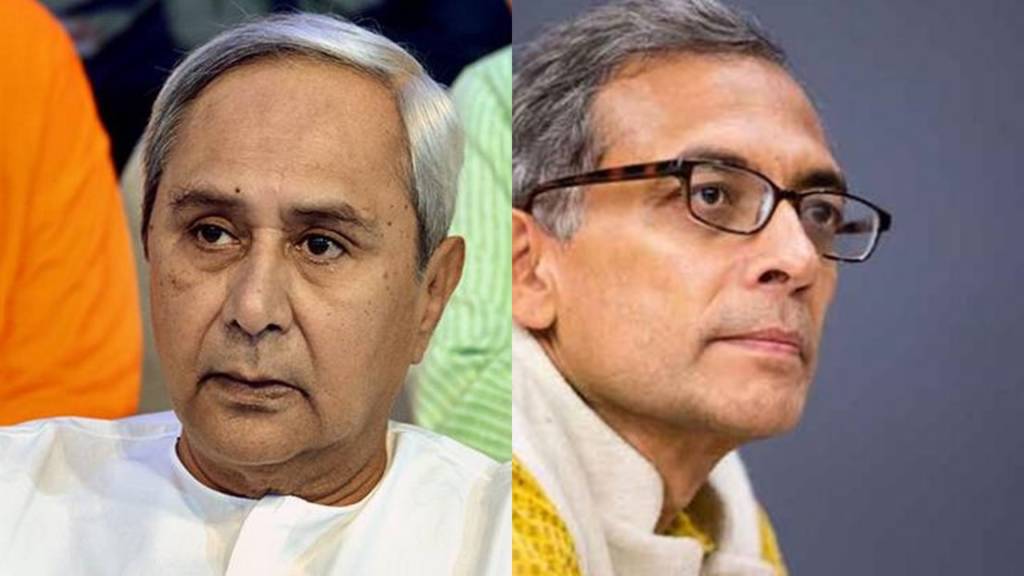There were many reasons for the Indian National Congress’s humiliating defeat in the Lok Sabha elections. While Rahul Gandhi embarks on a spree of one vacation after the other, the Congress has consciously stayed away from analysing the reasons behind its defeat as it strives to protect the Gandhi scion. The biggest blunder made by Congress in the run-up to the Lok Sabha election was the economically unfeasible welfare scheme ‘NYAY’ which was the brainchild of the Nobel laureate Abhijit Banerjee. NYAY was slammed for its poor economics and its blatant communist economics which has in the past proved to be disastrous with Venezuela being the most recent example. It is baffling that Banerjee along with his wife Esther Duflo and colleague Michael Kremer won the Nobel prize for economics for their work in ‘poverty alleviation’ as there are concerns over his method of ‘randomized controlled trial’.
In a suicidal move, the Odisha government has signed an MoU with the Abdul Latif Jameel Poverty Action Lab (J-PAL) South Asia which was founded by Banerjee to devise a strategic evidence-based approach to policy-making.
Banerjee’s policies often look good on the paper but when it comes to implementing it, they often have dire consequences and can break the nation’s economy which was quite evident from his NYAY model of economics. Congress leaders had no idea of how they will give Rs 72,000/annum to the poor in case they were elected to power and leaders like Sam Pittroda had made some callous remarks of how Indians should not be selfish and instead have a big heart and be open to excessively high taxes to fund NYAY. The scheme if implemented, would have cost around 3.6 lakh crore rupees or 14 per cent of total government expenditure. It would cost around 2 per cent of GDP and the central government’s net collection is around 10 per cent of GDP. To increase the tax to GDP ratio by 2 per cent, the scheme will bomb the middle class and businessmen with taxes. Banerjee himself had admitted that there would be no NYAY without tax increase as he believed “In principle, there’s scope for wealth taxation and in some sense, there’s scope for increasing GST.”
The field of economics has been filled with radical economists who have devoted their entire lives to practising Karl Marx style of economics which has forced Venezuela from being an oil-rich country to become a rat eating nation as the IMF predicts the inflation in the country will reach 10,000,000% by the end of 2019.
Banerjee is no different from the lot and his methodology will never solve India’s problems – a fact which Naveen Patnaik would have known had he examined his methodology. While the liberals adulated Banerjee as they sought to discredit the Modi government, none of them could explain what Banerjee’s research achieved that is so significant. Banerjee was awarded the Nobel for introducing the Randomized Controlled Trial (RCT) which involves breaking the problem of poverty down into infinitesimal, disconnected pieces.
His methodology has been severely criticised by various economists as the scope of the randomised travels has often proven to be too small as there is no evidence that what worked in the sugar belt of Maharashtra would work the same in urban Mumbai. Even concerning the fact that the scenarios of randomised controlled trials are invented and are not based on existing economic data or real-world situations. Banerjee’s method focuses on individual choice and turns a blind eye to the empirically established explanations for poverty. The method cannot reveal very much about causal processes since at their core they are designed to determine whether something has an effect, not how. The method is designed to measure the average effect of a treatment in a population and cannot generally tell us how it affects different parts of that population. There exists ethical concerns about the method too as it involves treating people as means rather than ends.
Naveen Patnaik has been a thorough statesman who hasn’t hesitated to support a bipartisan move like the “One Nation One Election.” While his intentions might be in the right place, by collaborating with Banerjee’s organisation he risks Odisha becoming the next Venezuela and only time will tell whether his risk has paid off. This is no less than a suicidal move for Odisha by government led by Naveen Patnaik.
